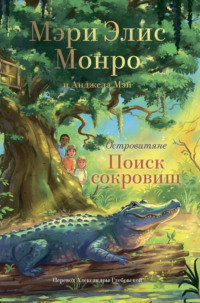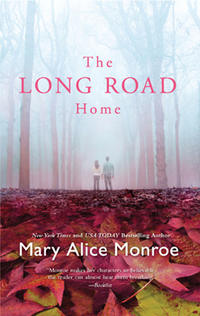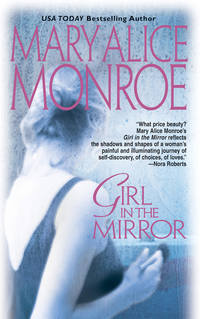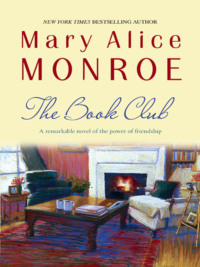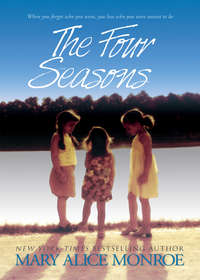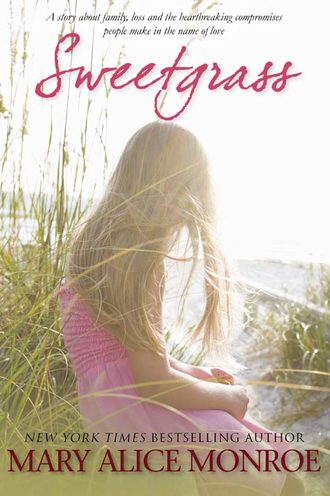
Полная версия
Sweetgrass
His mother, in contrast, prayed in church. The Blakelys were long-standing, staunch members of the Christ Church Episcopal Parish, and his mother was no exception. When he was little, his mother used to settle him on her lap during service by whispering the names of all the Episcopal ministers that graced the family tree. Or she’d tell of how she, along with generations of Blakely women before her, had stitched the fine needlework that graced the altar. He remembered how he’d slowly relax in her arms, surrounded in her scent of gardenias, a fine sheen of sweat from the stifling heat across his brow, while the murmurs of the faithful droned on.
Morgan felt a sudden longing for the years lost. Each great oak that he passed seemed to him as one of his ancestors, erect and silent, watching with judgment as this last remaining Blakely heir slunk along the worn path, his pockets empty and his dreams unrealized.
Unworthy, he heard in the rustle of leaves.
“You’re all dead!” he shouted, then swallowed hard, struck fresh with guilt at the sudden memory of his brother.
Morgan brought the bottle to his lips and drank thirstily. Why was he dredging up things he hadn’t thought about in years? Families had a way of tossing one straight back to the nursery. He didn’t have any intention of playing the role of angry young rebel again. He liked to think he’d traveled beyond that point in his life, at least.
Straight ahead, soft yellow light flowed from the mullioned windows of his family’s house. When he reached the porch stairs, Blackjack paused, tail wagging, and looked up expectantly.
“You’re like a ronin, aren’t you, boy? Just an old, master-less hound, like me,” he said, reaching over to pat the velvety fur. “No point in pretending any longer that you’re staying in your den, huh? Mama June’s wise to your tricks. Tell you what. She ain’t going to chase you off the porch. Nope. Truth is, no one has the heart. So, come on, then.” He grandly waved the dog up toward the house, tottering with the effort.
Blackjack’s tail wagged and he bounded forward. Morgan took the stairs more slowly. Once on the porch, Blackjack brought his muzzle to Morgan’s hand, demanding. Morgan patted his broad head. Comforted by the motion, Morgan obliged until Blackjack was at last satisfied and ambled at a soft, padded pace to the cushioned settee he’d claimed as his own. After climbing up, the old dog settled with a low grunt, worn out from the long walk.
Morgan eyed the curled-up dog and wished he could settle in as easily for the night. His joints were stiff from sitting all day in the hard hospital chair and, rolling his shoulders, he knew he’d ache tonight. Despite his fatigue and the bourbon running through his veins, however, his mind was still churning. He felt restless and wasn’t ready to go in just yet, so he took a final swig from the bottle, leaned against one of the eight porch pillars and lit a cigarette.
What the hell was he doing here? he asked himself. He’d been away from Sweetgrass for more than a decade, yet even in the darkness he knew the land as well as the lines of his own body. Looking out, he could readily mark the Blakely borders along the shadowy, ragged outline of the marsh. It extended far out to where the cordgrass met sea and sky to form the horizon. The landscape seemed unchanged in all the years he’d been gone—at least within the gates of Sweetgrass.
He’d half expected his parents to remain the same, too. Yet, today he’d seen for himself the ravages that time wrought on the people he loved and had left behind.
He ran his hand in a sulky sweep through his hair. Time had not been kind to him, either. The years of wandering had not brought him the answers he’d hoped they would. The answers he sought were not on the open road, nor in the mountains of Montana. This he’d learned today while sitting at his father’s side. As he searched those eyes that stared back at him with the intensity of an acetylene torch, the excuses had burned clean away and he’d realized that the answers he sought were here, at Sweetgrass, with his father.
“Aw, hell,” he muttered, pulling a long drag from his cigarette and tossing the bottle into the darkness. It fell with a satisfying crash.
Behind him, the front door creaked open.
“Morgan? There you are! I thought I heard a noise.” Mama June closed the door behind her and joined him on the porch.
“Just havin’ a smoke.”
“Thank you for smoking on the porch.” Mama June pulled her sweater a little tighter around her neck and came closer.
He glanced to his side. His mother seemed small and slight beside him, more girl-like than he’d remembered. “Kind of chilly tonight.”
“But it’s so bright and clear. Look! Venus is flirting with the Carolina moon.”
The moon was an upturned sliver of light cut in a swath of black velvet. Venus, piercingly bright, punctuated the curve like a beauty mark at the tip of a courtesan’s smile.
“How is he today?” she asked. “It’s the first day I haven’t been in to see him.”
“I expect he’s much the same as when you last saw him.” He flicked the ash and took another drag on his cigarette. “But he’s sure as hell not at all the same as when I last saw him.”
Her gaze searched his unkempt appearance with concern and he knew that she caught the scent of bourbon that clung to him.
“I was anxious about how you’d react,” she replied at length. “Are you all right?”
“Sure.”
“I see,” she said.
And he knew that she did.
“It was damn hard seeing him like that.”
“I tried to prepare you.”
“How do you prepare someone for something like that?”
She sighed. “I suppose that’s why Nan and the boys have such a hard time visiting.”
Morgan swallowed his retort with the smoke, feeling the burn. He dropped the cigarette and ground it with his heel. “Have you given any thought to what we talked about this morning?”
Her face grew troubled. Turning, she gripped the porch railing. “I’ve thought of little else.”
“Have you reached any conclusions?”
She looked out into the darkness for a moment. When she turned back, curiosity shone in her eyes. “Tell me, Morgan, you’ve looked into his eyes today. What did you see?”
He exhaled slowly. “I never thought I’d see fear in Daddy’s eyes. But I saw it today.”
“I’ve seen it, too!” she exclaimed, seizing the moment. “Every day. He’s trapped in there. He can’t even tell us what he wants.” She took a breath. “But I know what he wants. His eyes are speaking to me. They’re screaming bring me home!”
“Then that’s what you should do.”
Her expression shifted from elation to worry. “I wish it were so easy. It’s rife with problems. I know that bringing Preston home to Sweetgrass doesn’t make a whit of sense in dollars and cents. But his recovery isn’t just about money, is it?” she asked. “His recovery also depends on his spirit and his will. And I assure you, Preston’s will and spirit are intricately connected with Sweetgrass.” She looked up at him, her eyes entreating. “But I can’t do it alone.”
He knew where she was heading and placed his hands on the railing, leaning heavily. “Mama June…”
“Wait.” She drew back her shoulders. “All right, I’m ready. Ask me your question. One more time.”
A wry smile played at his lips upon seeing her rail-straight posture. He delivered his line sincerely. “Mama June, what do you want to do?”
She lifted her chin. “I want to bring Preston home to Sweetgrass. I want to care for him here, in his home, for as long as it takes him to get his voice back and let me know what he wants to do next.” She paused to take a breath. “And, I want you to stay.”
He barked out a laugh. “Well, ma’am, when you finally get around to answering a question, you sure deliver a mouthful.”
“You did ask.”
His jaw tightened, holding back the reply on his tongue. He’d been considering the option all day, wrestling with it with every bit as much desperation as Jacob with the Angel. He didn’t want to stay. Every instinct told him to get in his truck and hightail it back to the quiet isolation of Montana. Then he looked at his mother, waiting expectantly, and his decision tumbled into place.
“All right, then, angel,” he said with resignation. “It looks like you’ve won this one. I’ll stay.”
“Thank you, Morgan!”
He leaned back against the pillar. “Don’t thank me yet, Mama June. I don’t know how long we’re going to be able to hang on here. It won’t be easy. You may regret this.”
“Regret you coming home to help your father? Regret bringing Preston home to heal? Never!”
He chuckled at the passion of her statement. “All right then,” he said again. He ran both hands through his hair, scratching away the last of the bourbon from his head. “Now that that’s settled, I’m starving.” He patted his lean stomach. “Got anything to eat?”
Smiling at the age-old question, she stretched up to kiss his cheek. “Music to my ears. You go on and wash up and I’ll fix you something. I’ll be there directly.”
She watched him go inside, heard the soft clap of the screen door close behind him. Alone, she turned toward the vast darkness beyond, then looked to the heavens. The stars sparkled with a brilliance nearly as bright as the hope shining in her eyes.
Later that night a storm barreled through the Lowcountry, bringing with it crackling lightning and rumbling thunder that shook the rafters. Mama June roused from her sleep, blinking her eyes slowly as she grew accustomed to the deep darkness. She could see nothing save for the intermittent flashes of light from the storm. She wasn’t afraid. Ever since coming to live at Sweetgrass she’d thrilled to the fast-moving storms that swept from the mainland toward the ocean.
Restless, she turned over to her back and, placing her hands on her chest, played the game of counting the seconds between lightning and thunder. Rain tapped against the windows and the roof as she reviewed her decision to bring Preston home.
The tapping grew louder, interrupting her thoughts. Mama June glanced over to the window. Her breath hitched in her throat as she caught sight of a misty white mass hovering near the window. Squinting, she thought she saw a figure in the mist. The outline of a woman’s form in a nightcap and a long period dress appeared, looking directly at her. Mama June felt the hairs on her body rise.
Then lightning flashed again, bold and bright, and thunder clapped so near and loud that Mama June clutched her gown and nearly jumped from her skin. When she looked again, the apparition was gone.
Mama June sat up in her bed and, with a trembling hand, flicked on the bedside lamp. Instantly, a soothing light filled the room, reassuring her that she was indeed alone. Only the curtains flapped at the window. She brought her hand to her heart, and as her breathing came back to normal, she tried to dredge up the memory of what she’d just seen. It had happened so quickly, she couldn’t be sure if what she’d seen was real or a dream. Perhaps it was merely the strange light patterns from the lightning against the curtains.
“You old fool,” she muttered to herself, lowering back into bed and turning off the bedside lamp. “You’re just imagining things.”
The storm quickly passed out to sea and only a gentle rain pattered on the rooftop. Mama June felt a heavy weariness droop her eyelids and weigh down her bones. She lay her head down on the pillow and brought her blanket close under her chin, telling herself for the thousandth time that her imagination had got the best of her on this emotional day.
And yet…a persistent voice in her mind told her that she’d not been imagining anything at all. She knew what she’d seen in the floating mist—or rather, who.
It was the ghost of the family’s first matriarch, Beatrice. And she’d been smiling.
4
The art of basket making was brought to South Carolina by slaves who came from West Africa more than three hundred years ago. “For generations, the art has been passed from mother to daughter to granddaughter.”
—Vera M. Manigault, basket maker
MAMA JUNE’S HANDS TIGHTENED on the steering wheel of her ’95 Oldsmobile sedan as she leaned forward and squinted, focusing on the steady flow of traffic that whizzed past. Her heart beat like a wild bird in her chest.
The private road to Sweetgrass was accessed directly from Highway 17. In colonial days when Sweetgrass was a plantation, the roadbed was called Kings Highway and was a major artery for planters. In the twentieth century, it grew to become a sleepy highway for people traveling between Charleston and Myrtle Beach. As construction of housing developments, shopping malls and tourism burgeoned, however, the traffic roared by.
Mama June didn’t care much for driving in the first place, and it was no time for daydreaming if she didn’t want to get clobbered just trying to get out of her own driveway.
There was a break in the traffic and Mama June eased her great rumbling sedan onto the highway, earning a nasty honk from a speeding car that careened over to the left. As the car passed, the driver gestured rudely, yelling. Mama June smiled sweetly and returned the wave.
Most likely a tourist, she thought, her smile falling hard. She was smugly gratified to see the out-of-town license plate as it sped past. Mama June smoothed her hair, feeling both indignant and embarrassed. No one local would be so rude as to honk like that, or yell such things, she thought. Especially not to an elderly woman.
“What’s becoming of this town?” she muttered as she gradually eased her Oldsmobile up to just below the speed limit. She didn’t want to go so fast that she’d miss the stand. It ought to be coming up right soon.
The rickety wood stands that bordered both sides of the four-lane highway had been there for as long as she could remember. Beginning in Mount Pleasant and progressing clear up to Georgetown, African-American women could be found sitting in the shade beside their basket stands. They’d sit weaving the indigenous sweetgrass into baskets, patiently waiting for some local or tourist to stop alongside the road and purchase one of their works of art.
In bad weather, the lean-to stands stood stark and empty. In good weather, however, soft yellow-and-brown baskets by the dozens dangled from the wooden slats, some with bright red ribbons affixed during the holidays, some with paper price tags dangling gaily in the wind. All kinds of baskets were available: some with handles, some with tops, some large and flat and others with curves and twists. Mama June slowed down, her eyes peeled for one basket stand in particular.
Mama June remembered the day, so long ago, that her mama drove this same road to Myrtle Beach. It was her eighth birthday and her mother was taking her on a special holiday—just the girls. There would be swimming on the long stretch of pearly beach, shopping and eating out at restaurants. Oftentimes, her parents went off to the Grand Strand, giggling like teenagers. So this time was very special. She’d packed her new yellow dress with the stiff pastel crinolines that made her feel like a princess and shiny patent leather shoes bought specially for the trip.
Her mother had to make a stop in Charleston, so afterward they drove north along Highway 17. It was the first time she’d seen the many rickety, wooden stands that lined the road. In her child’s mind, she’d thought they were ramshackle houses and had felt sorry for the poor people who lived in those lean-tos. How her mother had laughed at that one!
Her mother had pulled over the big red Buick alongside one of the stands, Mama June recalled as if it were yesterday. Being young, she was nervous about approaching the two African-American women who sat in a companionable manner, weaving. They were kindly and took the time to show her how they wove the narrow strips of palmetto leaf through the sweetgrass to create a basket.
Mary June was mesmerized. As she watched the women’s strong fingers twist the yellow, sweet-smelling grass into shape, her own fingers moved at her sides. Impulsively, she begged her mother for a basket, saying she’d rather have one than a trip to the Strand, a comment that made the weavers roll their eyes and chortle. Because it was her birthday, her mother let her choose any one she wanted. Mama June still had that basket in a place of honor on her dining room shelf. It was the first of many baskets she’d collected over the years.
Mama June smiled at the memory, then shook her head, focusing on the road. She didn’t have to drive far before she spotted a basket stand that had a large number of more intricately designed baskets than most of the other stands held. Mama June pulled over to the side of the road and cut the engine just as an eighteen-wheeler pushed past her, causing even her large Olds to rock.
“Heaven, help us,” she exclaimed, holding tight to the wheel. Coughing lightly from the dust, she peered over her shoulder before pushing open the car door and scurrying out from the sedan to safety. As she approached the stand, Mama June’s experienced eye recognized the evenness of the stitches, the uniform rows of sweetgrass and the clever, subtle shift of color from the golden sweetgrass to the coffee-colored bull rush. To her mind, this weaver was a master.
One woman in a dull brown skirt and blue patterned blouse sat in the shade of a sprawling live oak. The woman’s hands stilled and her face lifted in expectant welcome. She had short, steel-gray hair worn in tight curls around her head, a straight nose that flared wide, bold cheekbones and a jawline that could have been carved of granite. Her appearance was regal and might even have been regarded as rigid were it not for her eyes. They were wide, deep and full of expression, so that one would always know her opinion on a matter without her having to speak a single word.
“Nona!”
Nona’s eyes widened in recognition and she raised her palms up. “Lord have mercy! Mary June! I haven’t laid eyes on you in weeks!”
“I know. And what a spell I’ve been having!” Mama June replied as she stepped forward to take the strong brown hands into her own. The two women looked into each other’s eyes as years of shared experiences flashed through both of their minds, tightening their clasped hands in unspoken acknowledgment.
“What brings you here today?” Nona asked, releasing her hold and folding her arms akimbo, eyes twinkling. Don’t tell me you’ve come looking for a basket?”
“One can never have too many sweetgrass baskets,” she replied, her gaze moving across the rows. “But actually,” she said, fixing her gaze on Nona, “I’ve got some rather bad news. Is this a good time?”
Concern crept into Nona’s eyes, though her smile remained fixed. “As good a time as any. I’m just sewing my baskets. I’d enjoy the company.”
“I can’t stay long. I’m on my way to the hospital. I don’t know if you’ve heard, but Preston’s had a stroke.”
Nona brought a hand over her heart. “Goodness, no! I didn’t hear a word about that! Now, that’s a terrible sadness. How is he?”
“Very bad, I’m sorry to say. It left him paralyzed and he can’t speak a word.”
“Lord have mercy.”
“He’s as helpless as a baby. But he’s been in intensive therapy. We have hope.”
“You got to have hope.”
“I honestly believe that the only hope he has of ever walking or speaking again lies in our getting him out of the hospital and back home. You know how much he loves Sweetgrass. I believe bringing him home will be his best tonic.”
“He surely does love the place,” Nona replied, nodding with affirmation. “Even so, you are his best tonic, Mary June. Always have been.”
“Well, I don’t know about that. But it is a big undertaking to bring him home.” Mama June gave a brief account of the army of therapists she’d scheduled to work with Preston at home and the kind of therapy each would provide.
Listening, Nona was all amazement. “And they do all that right there in your house?” When Mama June nodded, Nona shook her head. “It’s like bringing the hospital home with you! I expect that’ll cost you a bundle. All those professionals…”
“Insurance helps,” Mama June replied. “Still, it’s a worry. I’ve hired a live-in aide to see to Preston’s medical needs. But the house is another thing altogether.” She wrung her hands, unable to ask the question on the tip of her tongue, hoping Nona would read between the lines.
“What a time you’ve had.”
“Oh, Nona, there’s so much to be done. I expect to be busy as Preston’s caretaker, you see. I’m also taking care of the business of the farm as well.”
“You are?”
Nona’s shocked tone might have been insulting from anyone else, but she knew Mama June better than anyone—and was well acquainted with Mama June’s aversion to anything pertaining to money.
“Just until Preston is well.”
Nona’s brows rose. “That’s a lot to take on all of a sudden.”
“It surely is. Nona, I can tell you, I’ve been simply overwhelmed with all the decisions I have to make, and now with Preston due to come home…” She lifted her palms in a light shrug. “I probably should get some help.”
Nona looked away, lowering her hands and reaching out to straighten a few baskets in a line on the long table. “Might be a good idea,” she said in a slow voice. “Mary June, you might could get one of those cleaning crews. You know the ones I mean. A whole group of women come sweeping down on the house like locusts on a field and clean the house lickety-split.”
Mama June couldn’t speak for a moment. She felt a profound disappointment that Nona hadn’t come to her aid, as she’d always done in the past. What she really needed was someone she could depend on, someone to help manage the house. What she needed was a friend to help her out. But she couldn’t ask this without clouding the air between them.
“You’re probably right,” she replied, clutching her purse. “Well, I best be going. You take care.” She started to leave, then suddenly turned back. Nona hadn’t moved a muscle but stood, watching her. “I almost forgot. I wanted to buy a basket.”
“Now, Mary June, you don’t need to buy no basket.”
“But I want to. I see your style has changed a bit. Look at that one with the popcorn along the edges,” she said, pointing to a small capped basket. “That is a beauty. I’d like to have that one in my collection of your work or it wouldn’t be complete. How much is it?”
Nona lifted the intricate basket and slowly ran her fingers around its edges, considering. “This one didn’t take much time and there are some mistakes in it,” she replied. “Eighty dollars.”
Mama June took the basket in her hands and brought it close. “There’s not a mistake on this basket and you know it. And it took a considerable amount of time to make. It’s a bargain at a hundred.”
She reached into her pocketbook and tugged out two fifty-dollar bills. Each dollar was measured these days. She’d intended to go to the market on the way home, but this stop just cleaned out her wallet. She handed the bills to Nona.
“Thank you,” Nona said, pocketing the bills in her skirt without a glance.
“It was wonderful seeing you again. Morgan was asking after you.”
Nona’s brows rose high, creasing her broad forehead. “Morgan is back home?”
Mama June’s face eased into a grin. “Yes! At last! You could have knocked me over with a feather.” At the mention of Morgan, a child beloved by both women, the earlier tension fled as quickly as the traffic passing on the highway, and the words flowed more easily.
“What brought that rapscallion back home after all this time?”
“His father’s illness, of course.”
“Oh, Lord, of course. Well, he’s a fine boy to come to his father’s aid. I always said he was a fine boy.”
“Yes, you did. And he is. I just wish he knew that. I don’t know what I’d have done if he hadn’t returned when he did. I’ve been quite beside myself with worry. Not only about Preston but about what to do with Sweetgrass.”
“Come again? What do you mean about Sweetgrass?”




